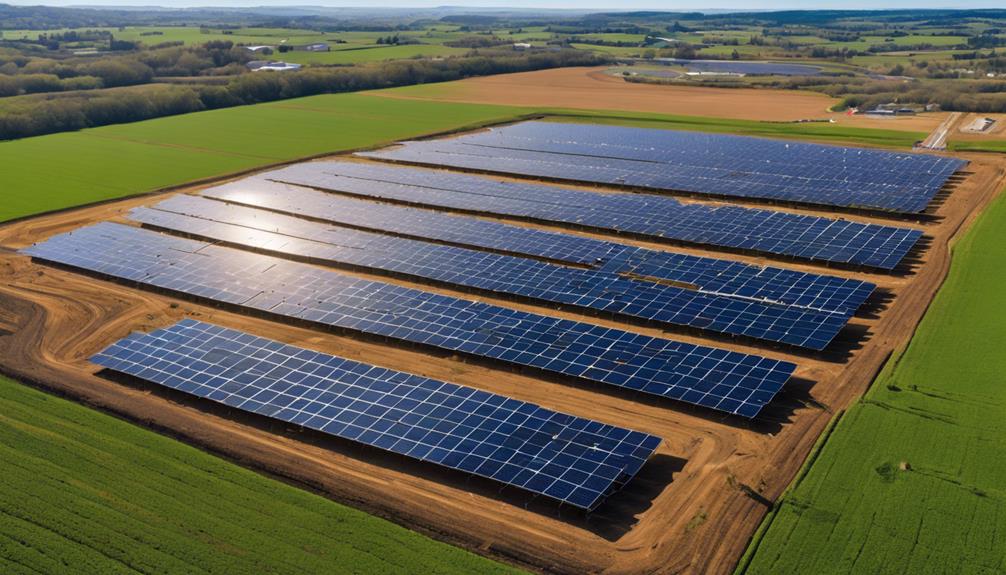
As the world shifts towards renewable energy, the demand for solar panel installer jobs is skyrocketing. This increase in job opportunities is driven by the urgent need to combat climate change and reduce dependence on fossil fuels. In this blog post, we’ll explore what it takes to become a solar panel installer, the skills required, and the advantages of pursuing a career in this growing field.
Understanding Solar Panel Installer Jobs
Solar panel installer jobs involve the installation, maintenance, and repair of solar photovoltaic (PV) systems. These professionals work on residential, commercial, and industrial projects, ensuring that solar panels are correctly installed to maximize efficiency and energy production. As the solar energy sector continues to expand, the need for skilled installers is becoming increasingly critical. According to the U.S. Bureau of Labor Statistics, employment for solar photovoltaic installers is projected to grow 61% from 2020 to 2030, much faster than the average for all occupations.
The Skills Required for Solar Panel Installation
To excel in solar panel installer jobs, individuals must possess a diverse skill set. Technical skills are paramount, including a solid understanding of electrical systems and wiring. Installers should be proficient in using tools and equipment necessary for panel installation, such as drills, wrenches, and ladders. Additionally, problem-solving abilities are essential to troubleshoot any issues that arise during installation. Physical stamina and strength are also important, as the job often requires lifting heavy equipment and working in various weather conditions.
Educational Pathways and Certifications
While a high school diploma may suffice for entry-level solar panel installer jobs, pursuing further education or training can enhance career prospects. Many community colleges and vocational schools offer programs in solar technology and renewable energy. Additionally, obtaining certifications from recognized organizations, such as the North American Board of Certified Energy Practitioners (NABCEP), can significantly bolster a candidate’s credentials. These certifications demonstrate a commitment to the profession and knowledge of the latest technologies and safety standards in solar panel installation.
The Benefits of a Career in Solar Energy
Choosing a career in solar panel installation offers numerous benefits. First and foremost is the potential for job security. As more individuals and businesses transition to solar energy, the demand for skilled installers is expected to grow. Additionally, solar panel installer jobs often come with competitive wages and the possibility of overtime pay. Many installers also enjoy flexible work hours and opportunities for travel, as projects can vary in location. Moreover, working in the renewable energy sector provides a sense of fulfillment, knowing that you are contributing to a sustainable future.
Career Advancement Opportunities in the Solar Industry
Starting as a solar panel installer can lead to various career advancement opportunities within the renewable energy sector. With experience, installers may progress to supervisory roles, overseeing teams and managing projects. Some may choose to specialize in areas such as solar system design or sales, while others may start their own solar installation businesses. Continuous education and professional development can further enhance career prospects, keeping installers abreast of industry advancements and emerging technologies.
The Impact of Government Policies on Solar Installer Jobs
Government policies play a pivotal role in shaping the landscape of solar panel installer jobs. Incentives such as tax credits, rebates, and grants encourage homeowners and businesses to adopt solar energy systems, driving demand for skilled installers. Additionally, many states have implemented renewable portfolio standards, requiring a certain percentage of energy to come from renewable sources. These policies not only create job opportunities but also foster innovation within the industry, leading to the development of new technologies and installation techniques.
Challenges Faced by Solar Panel Installers
Despite the numerous advantages of pursuing solar panel installer jobs, there are challenges that professionals may encounter. Weather conditions can impact project timelines, as installers often work outdoors. Safety is another critical consideration; installers must adhere to strict safety protocols to minimize the risk of accidents. Additionally, the industry can be subject to fluctuations based on market demand and government policies, which may affect job stability. However, many installers find the rewards outweigh these challenges, as the field is continually evolving and expanding.
Getting Started in Your Solar Panel Installation Career
If you’re interested in pursuing solar panel installer jobs, the first step is to research training programs or apprenticeships in your area. Hands-on experience is invaluable, so seek opportunities that allow you to work alongside experienced installers. Networking within the industry can also open doors to job opportunities and mentorship. Stay informed about the latest trends and advancements in solar technology by attending workshops, conferences, and trade shows. With dedication and the right training, you can embark on a rewarding career that contributes to a sustainable future.
In conclusion, solar panel installer jobs represent a vital and thriving sector within the renewable energy industry. With a robust job outlook, competitive wages, and opportunities for growth, this career path is appealing for those interested in making a difference while gaining valuable skills. As the demand for solar energy continues to rise, pursuing a career in solar panel installation could be an excellent choice for a bright and sustainable future.





